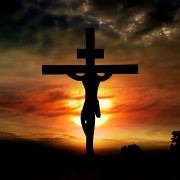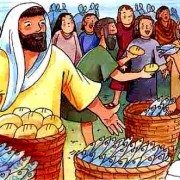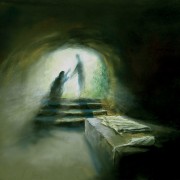“Obia Nto Ne Collection”: Reflections On Castro and The Ghanaian God
Author: Edem Morny
It has been a over a month now since the sad disappearance of the celebrated “Castro the Destroyer” and his female friend Janet Bandu whiles taking a ride on the Volta River in Ada. Many are the speculations as to what may have happened to them, and whiles the families of these 2 continue to hold out hope for their reappearance, the rest of the world can only mourn them and go on with life as usual. As is always common with the death/disappearance of any musician, their songs, especially the most recent hits become superhits with much airplay, and Castro’s “Adonai” song with Sarkodie is no exception. Paying more attention to this song vis-a-vis Castro’s demise certainly raises a lot of questions which we can either wish away, or confront somehow, and some of which I want to address here.
The song is indeed a good song melodically, and one can’t help dancing, tapping, nodding or singing along. However, one of the gifts of music is it’s ability to make you enjoy it without paying attention to it’s lyrics, and this song achieves this masterfully. I managed to find the lyrics dutifully written out here, which you can peruse yourself. Paying closer attention to them, one gets the impression that Castro together with his friend Sarkodie are praising God for making them the successful people they are today. In this attempt to praise God, they address their “enemies” or people who they suppose didn’t wish them well in life, and not only openly flaunt their vaunted success at these “enemies”, but also make a few disparaging comments about the inferiority of these “enemies” in comparison to them. All the while, Castro’s chorus continues to hook us in with its praise of God, encouraging us not to “lose guard”. All in all a brilliant musical composition no doubt.
First of all I’m not in the least bit surprised by the words of this song. It is the well established pattern in hip-hop culture to flaunt the “success” you’ve become and “diss” your perceived detractors. Coming from a people who have not only felt but experienced systemic poverty and economic marginalization, black American hip-hop culture has always felt that the music was a means to not only speak of the musician’s credentials as a bona fide “hustler who has made it”, but to rub everyone else’s nose in it, especially their perceived enemy. And so I’d rather have been surprised if Ghanaian hip-hop/hip-life songs like “Adonai” didn’t follow the pattern. In this respect, Sarkodie and Castro can pat themselves on the back for a good job done. But what happens when one says “Me nwuu y3 de3 na Nana Nyame te ase” (i.e. so far as I’m not dead, God is still alive) and dies a few months later? Shall we conclude that God is dead? Or more appropriately, shall we conclude that YOUR GOD is dead?
Ghanaians are known be a very religious people, if not one of the most religious in the world. In a country with over 65% claiming to be Christian, the term “God” tends to evoke the idea of the Christian conception of God. And yet I find that in much of Ghanaian discourse, the “God” we refer to is a god of our own creation, not the God revealed to us through the person of Jesus Christ. And to be frank, everyone worships one god or the other, even if they were atheists. So I don’t have a problem if we are referring to any number of these gods. But if we think we are referring to Jehovah as revealed through the person and ministry of Jesus, then we really need to think again.
Are we referring to the same Jehovah revealed through Jesus the Messiah, who told his disciples not only love their enemies but actually pray for them who persecute them, including the Roman soldiers who were persecuting them then (Mt 5:44)?
Are we referring to the same Jehovah revealed through Jesus the Messiah, who encourages his disciples that if forced (again by a Roman soldier, as they were legally empowered to do so) to carry a load one mile, they should carry it two miles (Mt 5:41)?
Are we talking about the same Jehovah revealed through Jesus the Messiah, who says that in his kingdom, blessed are the poor, those who are hungry, those who weep, those who are outcast (Lk 6:20-22), not because these states are states of bliss, but that in his kingdom now and in the future these people will experience reprieve from their troubles?
Are we talking about the same Jehovah revealed through Jesus the Messiah, who says the one thing that will mark his disciples out for the world to see is if they love one another (Jn 13:34-35)?
Or the same one who says the rich will have it much harder to enter into his kingdom (Mt 19:16-19), not because riches are bad, but can and has become a god that people, including musicians, serve?
Because if we are talking about this Jehovah, then he is not the one I see thanks being made to in Castro and Sarkodie’s song. And like I said, that’s alright, because everyone can create their own god and serve them and sing to them as they wish. But let not those who claim to follow Jehovah as revealed by Jesus the Messiah be fooled. They are talking about a different god. They are talking about the god of Ghanaian culture aka the Ghanaian God, under the cover of the Jewish title “Adonai”. For those who know which god they are referring to, at least they can enjoy their music and put on the appropriate filters when we hear “Nyame” and “Adonai” being mentioned. But for many ignorant ones, therein lies an even greater deception.
Because there is very little difference between songs like “Adonai” and a host of other “gospel” songs that plague the airwaves today. A large majority of our supposed “gospel musicians” today are so clueless as to what they are singing about, supposing that they are singing about Jehovah as revealed by Jesus. No, they are singing about the Ghanaian God,
The Ghanaian God who is more worried about your enemies and their annihilation than he is about their redemption from sin and death. Who seems to be powerless in the face of “Abeyifuo” , “Kabrekyire” and “Obonsam”. The Ghanaian God who is a genie that exists to satisfy our personal agenda, working only for our personal success, whiles mowing down our enemies. The Ghanaian God who gives us riches so we can spend only on our extravagance, and watch our neighbours go to sleep hungry. The Ghanaian God who delights in tribalism and divisiveness, who doesn’t mind if we are corrupt at work so we can pay big tithes in church. The Ghanaian God who demands all our loyalty to this country only, so that you hardly ever hear Ghanaian Christians thinking, praying or working to alleviate the suffering that other Christians are going through in other countries. And when that Ghanaian God dies as he supposedly has in Castro’s case, we simply pretend nothing has happened and continue with business as usual.
There is definitely a god that most Ghanaian Christians serve, but I’m not sure his real name is Yahweh, whose son is Jesus Christ the King. No, the God of Abraham, Isaac and Jacob left the building a long time ago. We are only feverishly serving a local substitute.












Leave a Reply
Want to join the discussion?Feel free to contribute!